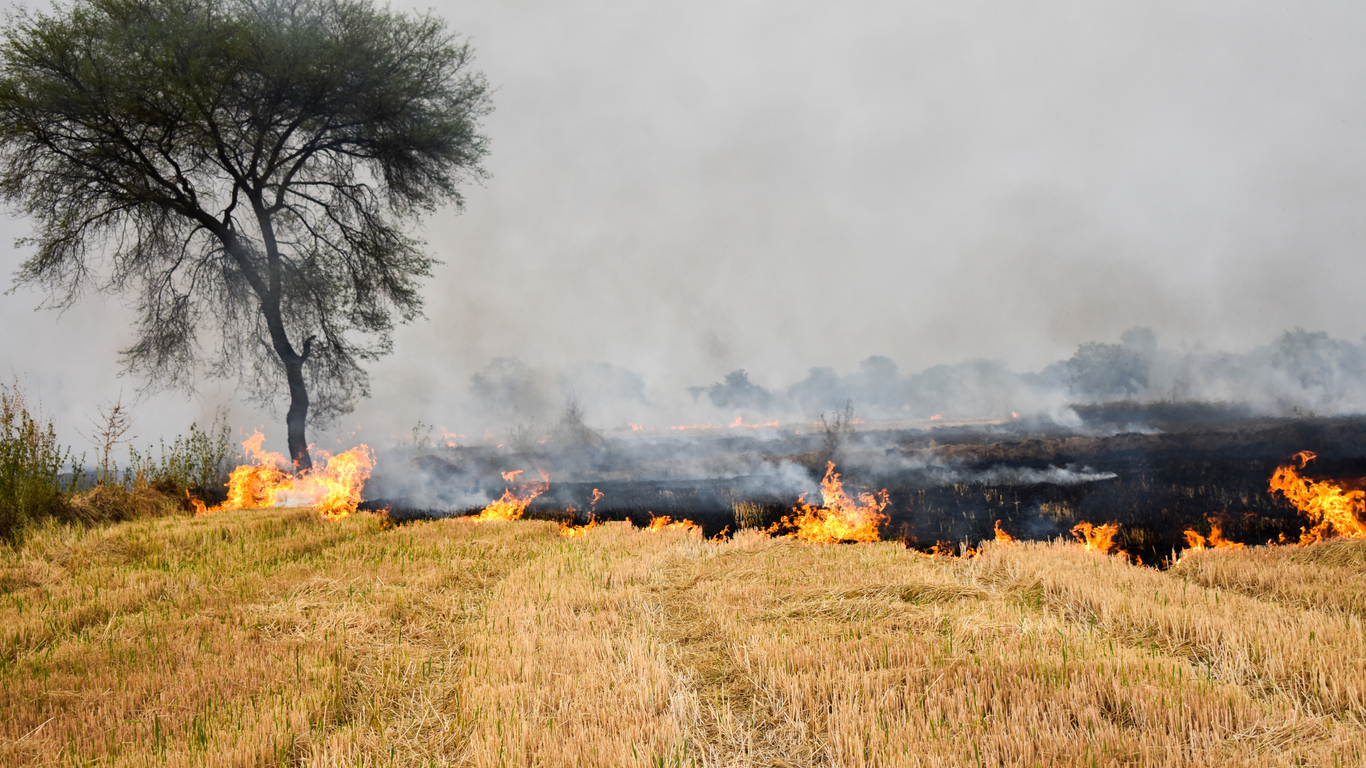
Haryana: Govt has taken stringent measures against stubble burning, says chief secretary

Chandigarh, Nov 8 (PTI) The Haryana government has taken stringent measures against stubble burning, issuing 1,256 challans against the offenders, imposing more than Rs 32 lakh in fines and filing 72 FIRs, Chief Secretary Sanjeev Kaushal said on Wednesday.
According to an official statement, during a virtual meeting convened by the Union Cabinet Secretary on Wednesday, Kaushal also said 90 per cent of paddy harvesting in the state has been completed and the state government is actively bolstering its measures to combat stubble burning.
"The government has taken strict actions against individuals responsible for farm fires, issuing 1,256 challans with fines totalling over Rs 32.55 lakh and filing 72 FIRs related to farm fires," Kaushal said.
A total of 44 farm fires were extinguished, according to a revised official statement.
An earlier statement had said that 44 offenders had been apprehended in connection with the FIRs related to farm fires.
Kaushal also informed that authorities in Haryana have imposed restrictions on BS-III petrol and BS-IV diesel vehicles to curb air pollution in Gurugram and Faridabad districts and the violators will face prosecution under the provisions of the Motor Vehicles Act, 1988.
Officials had on Tuesday said Haryana has banned the use of four-wheeler light motor vehicles of Bharat Stage-III (petrol) and BS IV (diesel) category in Gurugram and Faridabad districts.
He said there has been a 38 per cent reduction in stubble burning incidents in 2023 compared to the previous year, with a substantial 57 per cent reduction observed in the last two years.
The chief secretary underscored the state government's efforts to reduce stubble burning incidents and minimize farm fires.
Kaushal said the state government has imposed restrictions on BS-III petrol and BS-IV diesel Light Motor Vehicles (4 wheelers) in the Gurugram and Faridabad districts with immediate effect until November 30 or until the revocation of GRAP Stage III by the Commission for Air Quality Management, whichever occurs earlier.
The vehicles exclude those deployed in emergency services, police vehicles, and government vehicles used for enforcement, the official statement said.
"Violators found using BS-III Petrol and BS-IV Diesel LMVs (4 Wheelers) in these districts will face prosecution under Section 194(1) of the Motor Vehicles Act, 1988," he said.
The air quality in Delhi and its adjoining areas in the National Capital Region (NCR) worsened on Wednesday, with smoke from post-harvest paddy straw burning in neighbouring states contributing to the air pollution in the national capital.
Meanwhile, Kaushal said Haryana cultivates 36.5 lakh acres of paddy, comprising 18.36 lakh acres of Basmati cultivation and approximately 18.2 lakh acres of non-Basmati cultivation.
During the virtual meeting, he highlighted the steps taken by the state government, such as issuing instructions to hold deputy commissioners and station house officers liable for not controlling farm fires.
He reiterated the state government's commitment to eliminating unsustainable practices like paddy straw stubble burning, emphasizing support for farmers through a subsidy of Rs 600 crore for adopting various stubble management practices.
"The use of Pusa Bio Decomposer on over 5 lakh acres through CSR initiatives further demonstrates this commitment," he said.
Haryana's comprehensive strategy includes both in-situ and ex-situ management, with a focus on categorizing villages into red, yellow, and green zones based on active fire incidents.
The state government is dedicated to providing Crop Residue Management (CRM) machines to farmers at a subsidy, with 19,141 lakh machines already sanctioned to the farming community. An area of 940 lakh acres has been registered for incentives of Rs 1,000 per acre, he said. PTI

